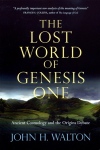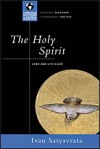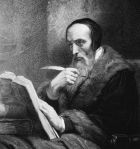Guest Review of Vondey’s The Scandal of Pentecost.
Flesh anointed, causing
Spirit-drunkenness
Babbling tongues
Perplexing wonders—
“What does this mean?”
The scandal of Pentecost
Perpetuates the scandal of Christ
Subverting norms
Clearing pathways
Prophetically proclaiming
God’s healing kingdom.
This is the thesis I find running throughout Wolfgang Vondey’s 2023 seminal work, The Scandal of Pentecost: A Theology of the Public Church (T&T Clark Bloomsbury Publishing Co., 2024).
After receiving a review copy, it has taken me several readings of Vondey’s Pentecostal theology of the public church to adequately grasp its message. I can assure you that this time taken for grasping its message is not all due to any deficiency of Vondey’s exposition, but rather to the profoundly full-sensory-evoking prose that several times left me feeling like the prophet Ezekiel who after experiencing the vision— sat stunned at the river Chebar.
Readers will thus find Vondey’s newest work not only theologically robust and solidly grounded in biblical exegesis but moreover— functioning very much as a “spiritual reading” that evocatively aims towards fostering the reader’s encounter with the very spiritual realities it explicates.
Exegetically and phenomenologically grounded in the Acts 1 narrative of the Pentecost event while working from a Christian theology of symbol that accentuates the parabolic and hence subverting aims of Christian symbolism, Vondey’s prime thesis is simply this. Contrary to common assumptions that Pentecost resolves the perplexities of Jesus’ scandalous life, it rather perpetuates his sandal through the ongoing prophetic role of the church gone public in the world.
Note that in Vondey’s biblical theology of the term, scandal signifies not necessarily the moral integrity of the scandalized but rather how the scandalized disrupted a prevailing culture’s norms and expectations. His sustained thrust from this Bible-evidenced “law of the scandal” thus helps us grasp the true parabolic power of Paul’s insistence: “The message of the cross is foolishness to those perishing, but to us becoming saved— it is the power of God.” Thus conversely, the experience of Pentecost is foolishness to the uninitiated. Yet to those whose flesh the Spirit engages – and thus every sensory organ animated as if zapped by electric shocks – Pentecost is a well of salvation flowing from the wounds of Christ our Spirit baptizer.
Though I can also now see how Paul himself wrestled with this scandal when, as this reading makes highly probable, he came close to inadvertently quenching the Spirit in Acts 14 through that phrase, “one at a time” (1 Cor 14), I can’t help but think that phrase is as humanly flawed as when elsewhere in a moment of frustration, he tells women that in the church gathering, they’re not to talk. (1 Tim 2).
For now, I must close this precursory reflection on Vondey’s stirring prose with a quote and one more quick implication. In subsequent days and weeks, I’ll post more reflections on this beautiful book.
First a word about the book’s structure. Reading and comprehending its Introduction and first two chapters (ch. 1 “Church as Symbol”; ch. 2 “The Christian Scandal”) are prerequisite to mastering the subsequent chapters’ respective themes and aims towards analyzing the three observed phenomena erupting through the bodies of both the public church and evoked world (ch. 3 “Drunken Disciples”; ch. 4 “Tongues of Babel”; ch. 5. “Anointing of Flesh”).
Vondey then converges these themes in ch. 6 (“Prophetic Witness”) to suggest how they help further and more robustly explicate the “prophethood of believers” (though Vondey does not use that term, I feel it aptly conceptualizes his direction). I will later further discuss these chapters and his “Conclusion” that ties them up towards the church’s congregational life and public witness through what we may thus aptly call, the parabolic function of the gifts of the Spirit (e.g., keeping in mind their symbolic roles towards arousing awareness of God’s kingdom).
Thus briefly looking at ch. 3 titled “Drunken Disciples,” note Vondey’s quotes:
“The fire and heat, passion and inspiration created by the prophetic spirit are enthusiastic because they stand at the limits of intellectual comprehensibility, physical control and social acceptability” (p. 108).
Yet— “The human behaviour is integral, not accidental, to the fulfilment of Jesus’ promise and the resulting ability of the disciples to be a witness to God in the power of the Spirit. The aesthetics of drunkenness, its overabundance and overflow in the flesh, makes possible the theophany, ecstasy and enthusiasm that belong to the gift of the Spirit precisely because it makes the church liable to criticism and forces the disciples to come out of themselves for the sake of public witness to the outpouring of God’s Spirit by the exalted Christ.
As the church receives the baptism in the Spirit, it offers in return its scandalous behaviour as a gift of God by giving the Spirit of Christ a body in the world. The church emerges in the history of the world with the gift of the Spirit through a public visibility and audibility manifested concretely in the scandal of its own behavioural corporeality” (p. 113).
From this extended quote, let me offer one quick implication towards today’s typical Pentecostal worship gathering:
In our ongoing intentional or even unintentional quest for cultural relevance, “seek-sensitivity” and conformity to Evangelical norms, are we more and more domesticating the Spirit by despising the Spirit of prophesy through by way of myriad fears and regulations (whether again intentional or unintentional) — curtailing eruption of congregational practices of spiritual gifts? Particularly the practice of prophecy?
Routinizing and thus domesticating the charisma— remains one of our most formidable challenges towards constructing the new bridges we need for reaching our postmodern world.




